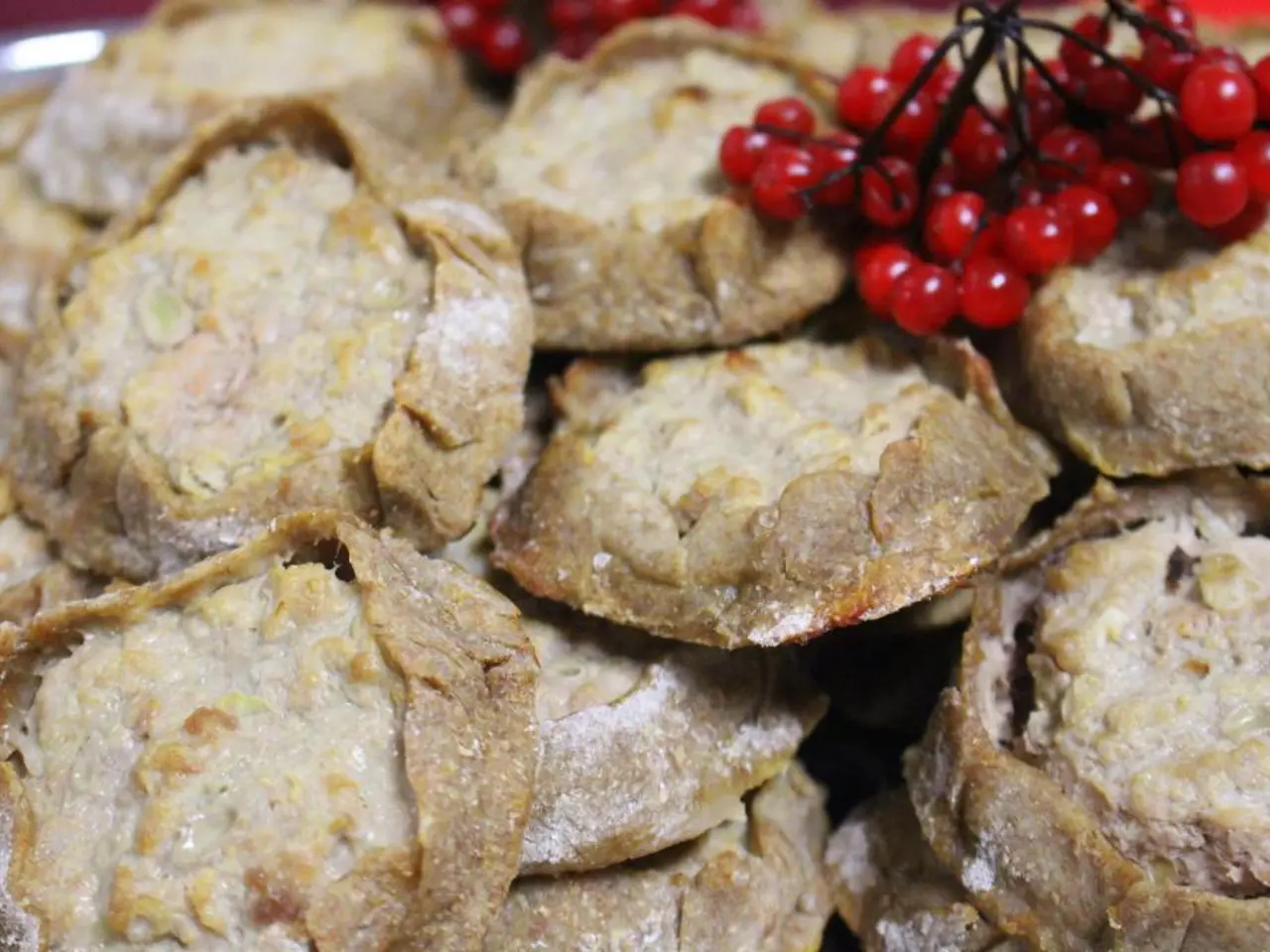Innovative California Company Secures Patent for Synthesizing Cocoa Butter via Plant Cell Cultivation
California Cultured Files Pioneering Patent for Cocoa Butter Production in Plant Cell Culture
In a groundbreaking development for the chocolate industry, California-based startup California Cultured has filed a patent for the production of cocoa butter in plant cell culture. This marks the first time that somatic embryos have been utilised for the production of fats in plant cell culture, a significant departure from the traditional reliance on callus cells.
Unlike callus cells, somatic embryos naturally produce high levels of fat, including the critical triglycerides POP, POS, and SOS that define cocoa butter. This breakthrough could potentially revolutionise the industry, as the company aims to achieve at least a 30% cocoa butter yield for the production via plant cell culture.
Up until now, all groups working in cocoa cell culture have relied on callus cells, which do not produce fat. California Cultured, however, is not planning to use genetic engineering to increase titers for cocoa butter production. Instead, the application of different types and ratios of plant hormones can determine whether cells turn into callus cells or somatic embryo cells.
The person who filed the patent for the production of cocoa butter in plant cell culture at California Cultured is Matthew J. Beer. The pilot plant in Sacramento, scheduled to open in 2026, will be the hub of this innovative work. California Cultured CEO Alan Perlstein recently discussed the company's work at the SynBioBeta conference.
In addition to cocoa butter, California Cultured is also working on the production of cocoa flavanols and powder using callus cells. The company describes the use of callus cells for flavanols or conventional cocoa powder as their 1.0 technology, and somatic embryos as their 2.0 technology. California Cultured is planning to use a specific cell line for multiple applications, including cocoa butter production and chocolate liquor.
The standard of identity for chocolate in many countries requires cocoa butter, and replacing cocoa butter is more challenging than replacing cocoa powder. Companies have tried to replace cocoa butter with hydrolysed palm fats, shea butter, and fats produced via microbial fermentation, but these options do not have the same melting profile as cocoa butter and can have a greasy feel.
The cocoa market is experiencing high prices and volatility, leading food companies to explore alternatives for cocoa powder and cocoa butter. California Cultured's patent covers all methods of processing chocolate that rely on somatic embryos, creating a strong moat around the use of cacao somatic embryos for making chocolate products.
The company hopes to move forward with somatic embryo-based products by 2027-2028. California Cultured is already starting to get samples out to customer partners for somatic embryo-based products. This development could potentially offer a sustainable, cost-effective, and high-quality alternative to traditional cocoa butter production, benefiting both the chocolate industry and consumers alike.
Read also:
- MRI Scans in Epilepsy Diagnosis: Function and Revealed Findings
- Hematology specialist and anemia treatment: The role of a hematologist in managing anemia conditions
- Enhancing the framework or setup for efficient operation and growth
- Hydroelectric Power Generation Industry Forecasted to Expand to USD 413.3 Billion by 2034, Projected Growth Rate of 5.8% Compound Annual Growth Rate (CAGR)








